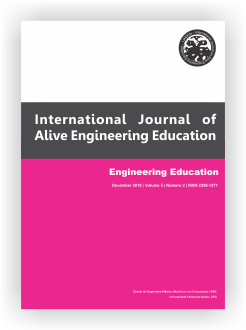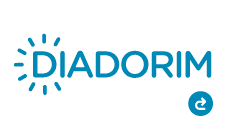Engineering graduation: why introduce sustainability
DOI :
https://doi.org/10.5216/ijaeedu.v5i2.55438Mots-clés :
Engineering, Environment, Environmental Certification, Living Laboratory, Sustainability, Undergraduate EducationRésumé
This article exposes the importance of training engineers who, since graduation, have in depth knowledge in both practical and theoretical areas of social, environmental and economic issues, including sustainability in its entirety. Through a bibliographical review of the existing materials in this context and the results obtained through researches, it was possible to confirm the theories addressed throughout the text. The pertinence of this article comes from the need to control the progress of the destruction of the environment that is directly influenced by the practice of the Engineering profession. The engineer, because of his active participation in the changes in the environment in which he lives, has increasingly felt the need to adapt to the new world reality, which requires, both socially and economically, the introduction of sustainability in the practice of the profession. From this, we have succeeded in researches that demonstrated, through data and graphs, the growing requisition of the economic market for environmental certificates such as ISO 14001: 2015, used in Brazil, which had its emission intensified around 544% in the period of 2016 to 2017. However, with a survey conducted at the Polytechnic School of Pernambuco, it was possible to note that only an average of 1.94% of the engineering curriculum is intended for sustainability education, thus confirming the importance of upgrading university programmes. In addition to this innovation in the faculties, it is necessary to live the principles of sustainability, as in the concept of "living laboratory", in which engineering undergraduate institutions become the means that allows and provides the insertion in the labor market , of a conscientious professional in relation to the sustainability pillars, including the social, environmental and economic spheres.
Références
ALMEIDA, F. O bom negócio da sustentabilidade. São Paulo: Nova Fronteira, 2002.
ARMESTO, J. M. Education cientifica y sociedade sustentable. Boletin Proyecto Principal de Educación en América Latina y el Caribe, n. 44, 1997, 37-43 p.
ATAIDE, F. C. Certificação Florestal - FSC Forest Stewardship Council. Minas Gerais, 2008. Available in: < http://www.techoje.com.br/site/techoje/categoria/detalhe_artigo/150> Access in: 03/27/18
CALDER, W. The UN Decade of Education for Sustainable Development - A Progress Report. AULSF’ The Declaration, v. 7, n. 2, 2005, 8 p. Available in: <http://ulsf.org/wp-content/uploads/2017/01/CalderCoverDESD.pdf> Access in: 05/03/17
CARDOSO, R. B. Avaliação da Economia de Energia atribuída ao Programa Selo PROCEL em Freezers e Refrigeradores. Minas Gerais, 2008. Available in: < http://saturno.unifei.edu.br/bim/0032109.pdf> Access in: 03/25/18
CASAGRANDE J. E. F.; CASSILHA, A. C.; SILVA, M. C. Energia e o ensino da engenharia na Universidade Tecnológica Federal do Paraná - UTFPR: Desafios para se alcançar a sustentabilidade. 2011. Available in: < http://revistas.utfpr.edu.br/pb/index.php/revedutec-ct/article/view/1098> Access in 04/28//17
CHAN, E. S. W.; WONG, S. C. K. Motivations for ISO 14001 in the hotel industry. Tourism Management, v. 27, n. 3, 2006, 481-492 p.
CMMAD, Comissão Mundial sobre Meio Ambiente e Desenvolvimento. Nosso Futuro Comum, Editora da Fundação Getúlio Vargas, Rio de Janeiro, 1998, 430 p.
CRUICKSHANK, M. H. J. The Roles and Responsibilities of Engineers towards Implementing Sustainable Development. Paper for International Conference on Sustainability Engineering and Science, The New Zealand Society for Sustainability Engineering and Science, Auckland, New Zealand, Jul. 2004, 13 p.
DANNA, F. L. O Perfil do Engenheiro no Século XXI. Seminário "O Ensino da Engenharia para o Século XXI nos Países Amazônicos" UNESCO e UNAMAZ. Editora: UNAMAZ – Belém, 1996. Available in: <http://www.ufpa.br/unamaz/index_arquivos/Page5716.htm> Access in: 03/28/18
EON, F. O que é responsabilidade social? Revista ResponsabilidadeSocial.com, 2015. Available in: <http://www.responsabilidadesocial.com/o-que-e-responsabilidade-social/> Access in: 05/04/18
FERRO, A. F. P.; BONACELLI, M. B. M.; ASSAD, A. L. D. Oportunidades tecnológicas e estratégias concorrenciais de gestão ambiental: o uso sustentável da biodiversidade brasileira. São Paulo, vol.13, n.3. 2006. Available in: <http://www.scielo.br/pdf/gp/v13n3/10.pdf> Access in: 03/28/18
HUISINGH, D. New Challenges in Education for Sustainable Development. Clean Technology Environmental Policy, v. 8, 2006, 3-8 p.
LARENTIS, F. Relacionamento com fonte de vantagem competitiva sustentável: um estudo de caso entre fabricantes de móveis e lojas exclusivas. Rio Grande do Sul, 2005. Available in: < http://www.lume.ufrgs.br/bitstream/handle/10183/4302/000455062.pdf> Access in: 04/02/18
LEITE, V. F. Certificação ambiental na construção civil – sistemas LEED e AQUA. Available in: <http://pos.demc.ufmg.br/novocecc/trabalhos/pg2/76.pdf>. Access in: 04/05/18
SILVA, C.; QUELHAS, O. L. G. Proposta de integração da sustentabilidade no processo racional de planejamento. 2 nd International Workshop Advances in Cleaner Prodution. Key elements for a sustainable world: material, energy and climate change. São Paulo, Brasil, May 20th -22nd, 2009. Available in: <http://www.advancesincleanerproduction.net/second/files/sessoes/4b/5/L.%20C.%20Silva%2 0-%20Resumo%20Exp.pdf >. Access in: 05/01/18
STARKE, L. Sinais de esperança: lutando por nosso futuro comum. Rio de Janeiro: FGV, 1991, 180 p.
STEVENSON, R. B. “Education and Sustainable Development: Perspective and possibilities”. In Education and Sustainability: Responding to the Global Challenge. D. Tilbury, R. B. Stevenson, J. Fien, and D. Schreuder (Ed). Gland, Switzerland: IUCN, 2002. Available in: <http://www.mma.gov.br/port/sdi/ea/deds/arqs/educandsust.pdf>. Access in: 03/29/18
VASCONCELOS, S. S.; FILHO, M. A. N. Vantagem Competitiva com a prática de responsabilidade social e sustentabilidade? Ciências Sociais Aplicadas em Revistas - UNIOESTE/MCR – v.9-n.17 , 2009, 112 p. Available in: <http://e-revista.unioeste.br/index.php/csaemrevista/article/viewFile/5323/3989>. Access in: 04/29/18
WSSD, World Summit on Sustainable Development. Report of the World Summit on Sustainable Development Johannesburg, South Africa, 2002, 66 p. Available in: <http://www.unmillenniumproject.org/documents/131302_wssd_report_reissued.pdf>. Access in: 05/01/18
Téléchargements
Publié-e
Numéro
Rubrique
Licence
Copyright
The author is responsible for the following statements by submitting an article electronically in the International Journal of Alive Engineering Education (IJAEEdu):
a) States that the document in question was reviewed by an expert in English language and it is an original work and it holds the prerogative to grant the rights contained in this license. It also states that the document does not infringe, as far as it is possible to know the rights of any other person or entity.
b) If the document in question contains material which does not hold the copyright, the author states have obtained the copyright holder’s permission to grant the Universidade Federal de Goiás (UFG) the rights required by this license, and that such material whose rights are third is clearly identified and acknowledged within the text or content of the document.
c) States that the study was conducted in accordance with the ethical standards of all applicable institutional, local, national and international guidelines.
d) It also states that any person appointed as author or co-author of the document is aware of it and agrees to be so appointed.
Authorization Form
As responsible for the submission of the document, I authorize the School of Electrical, Mechanical and Computer Engineering of the Federal University of Goiás to provide the paper free of charge, through the Electronic System for Publishing Magazines UFG (SEER / UFG) or in printed form, without compensation of copyright, in accordance with Law No. 9610/98. Is allowed, reading, printing and / or download, as a promotion of the Brazilian scientific production. Any use of the work not authorized under this license or the copyright law is prohibited.



